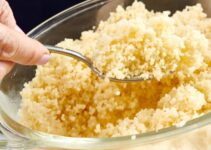Aloe vera introduction
Aloe vera is known as a “wonder plant” because of its numerous medical and scientifically verified benefits. The leaves of the plant are succulent, and the gel produced by it has many therapeutic uses and properties. Besides using aloe vera in the skin, hair, and face, it is also known for weight loss. It’s a million-dollar plant because of its uses in cosmetic, food, and beverage industries. Aloe vera’s excellent benefits make it unique in the category of the medicinal herbal world.
Uses of Aloe vera

- Food
- Cosmetics
- Beauty products
- Food products
- Herbal remedies
- Agriculture
- Medicinal
- Decorative
- Beverages
- Skin lotion
- Ointments
Scientific classification of aloe vera
- Kingdom: Plantae
- Clade: Angiosperm
- Order: Asparagales
- Family: Asphodelaceae
- Sub-family: Asphodeloideae
- Genus: Aloe
- Species: A.vera
Description of aloe vera
- Aloe vera is a stemless herb with a 60–100 cm height.
- The leaves are succulent
- The margin of the leaves is serrated with small white teeth.
- The flowers come in summer.
Bio-chemicals of aloe vera
Many phytochemicals are found in aloe vera.
- Acetylated mannans
- Polymannans
- Anthraquinone
- C-glycosides
- Anthrones
- Emodin
- Lectins
What is the benefit of Aloe Vera?
- Teeth health: Aloe vera is quite effective for the health of teeth and gums. It has unique properties to prevent tooth cavities.
- Constipation treatment: 50 milligrams of aloe vera gel may be taken daily for 10 days to treat constipation.
- Antioxidant: Research has been conducted in Spain wherein it has been shown that leaf skin extract and plant flowers contain methanol, which acts against mycoplasma bacteria. The extract is also an effective oxidant.
- Aging effect: The one-month-old lotion obtained from the baby aloe vera plant protects the skin from ultraviolet rays and the ageing effect, as per the study conducted at Kyung Hee University Global Campus, South Korea.
- Laxative: The dried gel can be powdered, which may be used as a laxative. However, its authenticity has still to be examined.
- Toxin cleaner: One of the essential biochemical substances found in aloe vera is acemannan, a complex carbohydrate. It helps the body cells to enrich with nutrients and also relieve them from toxins.
- Dry skin: Aloe vera helps to make the dry skin radiant. Method: Take aloe vera gel, turmeric, honey, milk, and a few drops of rose water. Now, could you paste it and leave it on the face for 15 minutes, then wash it with water?
- Scrubbing: Rubbing the paste of aloe vera along with sugar and lemon juice helps remove dead skin, ensures skin cleansing, and fades out scars and tan.
- Hair fall: Aloe vera contains a biochemical substance called proteolytic enzymes, which repair the scalp’s dead skin cells. The use of aloe vera gel also helps to condition and shine hair. The chemical composition of aloe vera is almost similar to keratin, thus suitable for hair health.
- Facial glow: Applying the paste of aloe vera, walnut, flour, and honey on the face helps to make it smooth and glow. It also removes acne and blemishes.
Potential benefits of drinking Aloe Vera juice
- It helps in weight loss.
- Fights digestive disorders
- Removes toxins from the body
- It is good for anaemia patients.
- It is loaded with nutrients.
- It helps to balance hormonal issues.
- Excellent gel for the health of skin and hair.
- It also boosts immunity.
- It reduces blood sugar level
- It can fight breast cancer.
What are the medicinal uses of aloe vera?
- It is used as an antiviral
- Anti-bacterial
- Anti-diabetic
- Anti-cancerous
- Can be used as a mouthwash
- Natural laxative
- Flushes toxins
What about aloe vera gel
Aloe vera gel can be obtained from its leaves. The translucent gels are bitter and are known for healing and curative properties. It contains about 96 % water, along with organic and inorganic compounds. It is also rich in amino acids vitamins A, B, C, and E.
Can Aloe Vera be eaten raw?
As per the Ayurveda system of medicine, Chinese and British herbal medicines, aloe vera can be consumed orally.
Is aloe vera poisonous?
No, aloe vera is not poisonous. Drinking aloe vera juice early in the morning on an empty stomach helps to improve digestion and treats many digestive-related problems.
Does aloe vera dry out the skin?
Aloe vera smooths the digestion process. It makes you healthy, which will be noticed in your outer skin. It contains vitamins C, E, and beta carotene and is anti-ageing.
Does Aloe Cure Pimples?
Since it works on the epithelium cells and tissues, skin specialists recommend removing tan, sunburn, pimples, blemishes, stretch marks, etc.
Is it reasonable to put aloe vera on your face every day?
The excess of anything is wrong. It shouldn’t be used daily as the facial skin is quite sensitive. It can be used twice or thrice a week.
Is Aloe Vera good for the eyes?
It is full of phytochemical substances. So, one shouldn’t use it on the eyes.
Does aloe vera cause cancer?
Recently, a study has been conducted which shows that it has the potential to fight breast cancer.
Can we apply aloe vera on hair daily?
Aloe vera is good for strengthening the hair follicles and scalp. It is also used to prevent hair fall, conditioning, shining, prevention of itching, controlling dandruff, etc. However, it is advisable to use it twice or thrice a week.




